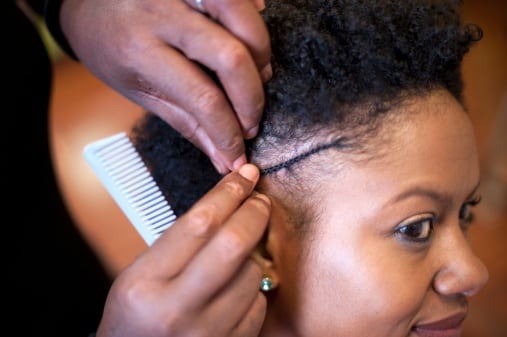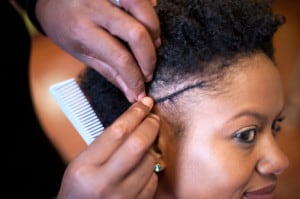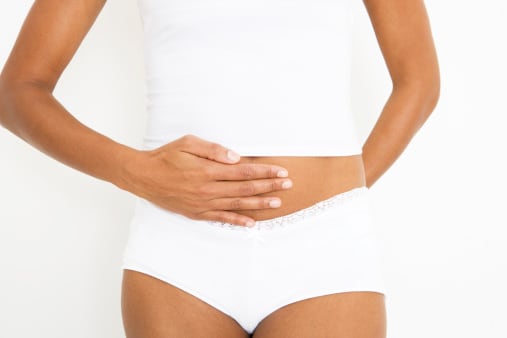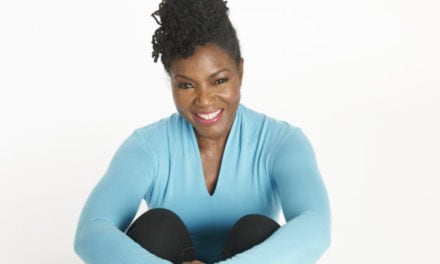Tight twists and braids, weaves snugly sewn into hair, chemical relaxers and other common methods of styling our hair just may cost us the locks we love so dearly. Yet many black women are unaware that the hair loss they experience is unnatural, so it may go undiagnosed and untreated.
“While genetics may play a key role in hair loss among black women [as it does in many cases of hair loss] styling practices such as braiding, weaves and chemical relaxing may also increase the risk, said dermatologist Yolanda Lenzy, MD, a clinical associate professor at the University of Connecticut in Farmington in an interview with Healthday.
Lenzy worked with the Black Women’s Health Study (BWHS) at Boston University’s Slone Epidemiology Center to conduct a new survey of nearly 5,600 black women about the condition of their hair. They found that almost 48 percent of the women had experienced hair loss in the top of the scalp. The research was presented to the American Academy of Dermatology at their Feburary 2016 meeting.
Hair naturally thins with age in women and men, though it’s most common in women older than 50. Bald spots in younger women are more likely to be related to stress, the temporary after-effect of pregnancy, or damage from hair styling methods.
“When hair loss is caused by styling practices, the problem is usually chronic use. Women who use these styling practices tend to use them repeatedly, and long-term repeated use can result in hair loss,” Lenzy said. Yet, more than 81 percent of if the BWHS survey respondents said they had not discussed the loss with their dermatologist.
Why Black Women Lose Their Hair
The most common cause of hair loss in black women is called The leading cause of hair loss in black women is a condition called central central centrifugal cicatricial alopecia CCCA). The condition was previously called “hot comb alopecia,” or follicular degeneration syndrome by the North American Hair Research Society (NAHRS).
CCCA destroys hair follicles through inflammation in ways that can cause scarring on the scalp and permanent hair loss. About 41 percent of the women in the survey respondents had levels of hair loss consistent with CCCA.
The symptoms of CCCA may include a tender, burning, itching scalp as well as hair loss. “Along with self-monitoring, women can ask their hair stylists to alert them to signs of hair loss,” Lenzy said.
Early treatment by a dermatologist may prevent further CCCA-related hair loss, so it’s important to see a doctor if your hair is thinning at the crown of your head or you have other symptoms.
Avoiding Permanent Hair Loss
While early treatment may stop CCCA, it cannot bring life back to dead hair follicles (most CCCA-related hair loss in permanent), your can protect yourself by avoiding tight hair styles that put pressure on hair follicles and limiting your use of chemical relaxers.
To learn more about protecting your locks, while looking fabulous, read: Beautiful Hair-at Any Age 30s 40s 50s 60s Beyond.









